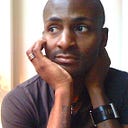Haha, I fear that whatever I respond to here I risk being accused of being selective, because of course I am being selective, but I can’t bear to let this stand uncorrected 😅 I am definitely not a postmodernist. Very far from it in fact. All opinions are my own and not borrowed from other people's talking points.
I'm never looking for anybody to agree with me out of politeness, and my disagreement with this one idea certainly doesn't signal that I don't like you. A fruitful conversation doesn't need to end in agreement after all. I was actually intrigued to see if you could point to a meaningful difference between a truth claim and a knowledge claim for us poor, short-sighted humans. I don’t see one, but that doesn't mean there isn't one. But as you're the one claiming that there is such a difference, I need you to point it out to me.
To answer your closing question, yes, I think it's hugely important how we know what we "know". Human beings have "known" that the Earth was at the centre of the universe, and that witches floated in water and that Jews should be exterminated. Countless people have died over this "knowledge". And the only thing that eventually saved us from it was brave people willing to ask how we knew it. To ask whether there was a difference between this "knowledge" and truth. There always needs to be room for doubt in what we know. If we mistake anything we think we know for the objective Truth, we stop considering that we might be wrong.
